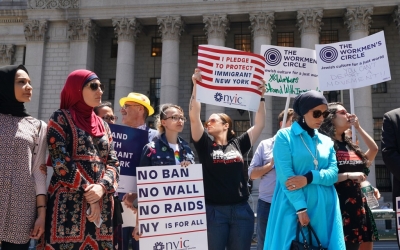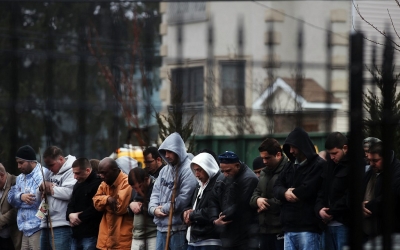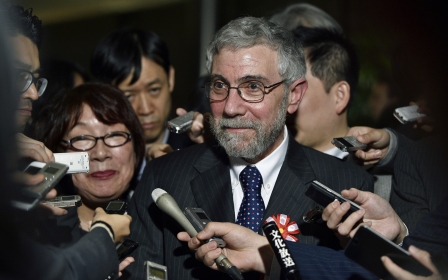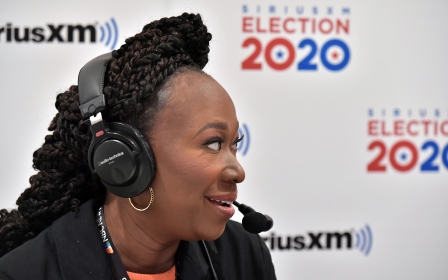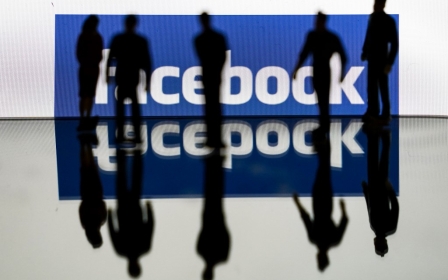US Supreme Court hears case of Muslims put on No Fly list for refusing to spy

More than 13 years ago, FBI agents walked into the store of Muhammad Tanvir, a legal permanent resident from Pakistan in New York, asking him to spy on the Muslim community. When he refused, he subsequently found himself on the federal government's No-Fly list.
On Tuesday, the US Supreme Court heard Tanvir's lawyer argue that he and others who faced similar treatment are entitled to compensation from federal officials who allegedly violated their religious beliefs.
"Federal agents put my clients on the No Fly list because they refused to spy on innocent coreligionists in violation of their Islamic beliefs. My clients lost precious years with loved ones, plus jobs and educational opportunities," Ramzi Kassem, a lawyer representing Tanvir and two others, told the court.
The legal battle started in 2013 when CLEAR, an advocacy initiative at the City University of New York (CUNY), sued the federal government on behalf of Tanvir. Soon after the Center for Constitutional Rights (CCR) and three other Muslim men on the No-Fly list joined the lawsuit.
"This impermissible abuse of the No Fly List has forced plaintiffs to choose between their constitutionally protected right to travel, on the one hand, and their First Amendment rights on the other," the original legal complaint, filed in a US district court in New York, reads.
'Agents remain free to repeat what they did'
As the lower court was gearing up to hear the case in 2015, the government introduced some reforms to add transparency to the No Fly list and informed all four plaintiffs that they are no longer on it, prompting the district judge to dismiss the lawsuit. But CLEAR and CCR appealed.
An appellate court sided with the plaintiffs that the district court should hear the case, ruling that Tanvir and the others may be entitled to damages. One of the original plaintiffs had withdrawn from the lawsuit during the appeal process.
'Federal agents put my clients on the No Fly list because they refused to spy on innocent coreligionists'
- Ramzi Kassem, CUNY's CLEAR project
The US government, in turn, launched its own appeal, and the Supreme Court agreed to hear the case.
On Tuesday, Kassem, who is the director of CLEAR, stressed that the Religious Freedom Restoration Act (RFRA), a 1993 US law, allows victims to sue government officials in their personal capacity in order to obtain compensation for mistreatment. He argued that removing his clients from the No Fly list is not enough.
"Without damages as a deterrent, petitioners and other agents remain free to repeat what they did here - flout RFRA until challenged in court and then back off," Kassem told the court's justices.
A government lawyer had told the high court that RFRA does not entitle plaintiffs to monetary damages or to sue individual officials. Ending the alleged violation, known as injunctive relief, should suffice, the government representative argued.
Targeted because they're Muslim
Muslim advocates have long decried the murky use of the No Fly list against their community. It has deprived people of their ability to travel without presenting evidence against them in what critics describe as a violation of due process and equal treatment under the law.
Jameel Algibhah, one of the plaintiffs, was not able to visit his wife and three daughters in Yemen for years because of his placement on the list.
At a virtual news conference after the hearing on Tuesday, Diala Shamas said while the argument at the Supreme Court was on the narrow question of whether the law allows the suing of officials individually, the case has "significant" implications.
Shamas said the Muslim men were targeted because of their faith, not because of anything else they may have done.
"They were approached as part of a sprawling government programme targeting Muslim communities for surveillance and intelligence gathering," she said.
"These law enforcement programmes have included aggressive and relentless recruitment and deployment of informants.
"Our clients all refused in part because it went against their religious beliefs, because they knew that the government had painted their faith community as suspicious, and that the agents were seeking to have them participate in that criminalisation."
'Unpredictable'
Jennifer R Cowan, a pro bono counsel at Debevoise & Plimpton LLP, a law firm supporting the plaintiffs, said the lawsuit is not only about justice for Tanvir and others, but also to protect religious communities and deter future wrongdoing by the government.
"Our hope is that the court will recognise that Congress intended for RFRA to stop that kind of behaviour, and that one of the tools to stop that behaviour is damages against the individual defendants," said Cowan.
The Supreme Court heard the oral arguments in the case less than three weeks after the death of one of its nine justices - Ruth Bader Ginsburg. If opinions on the court are split evenly, the decision of the appellate court, which ruled in favour of Tanvir, remains in place.
The court will issue the decision in the case before the end of its annual session, known as term, which could be as late as June of next year.
"They put me on the No Fly list. My family and me - everybody was really stressed because we didn't know what to do," Tanvir said after the hearing on Tuesday.
"I don't want anyone else to experience what I [experienced], and I hope the court recognises that and allows our case to go forward."
The court currently has a conservative majority that is sympathetic to the religious rights of Christian denominations, making it unclear how the ideological leanings of justices will affect the case which alleges violations of the religious liberty of Muslim men.
Naz Ahmad, a senior staff attorney at CLEAR, said various aspects of the case makes it "unpredictable".
"It's a religious exercise question. It involves Muslims. That's different. And then it also involves this issue of damages against federal employees," she told MEE.
Middle East Eye propose une couverture et une analyse indépendantes et incomparables du Moyen-Orient, de l’Afrique du Nord et d’autres régions du monde. Pour en savoir plus sur la reprise de ce contenu et les frais qui s’appliquent, veuillez remplir ce formulaire [en anglais]. Pour en savoir plus sur MEE, cliquez ici [en anglais].


